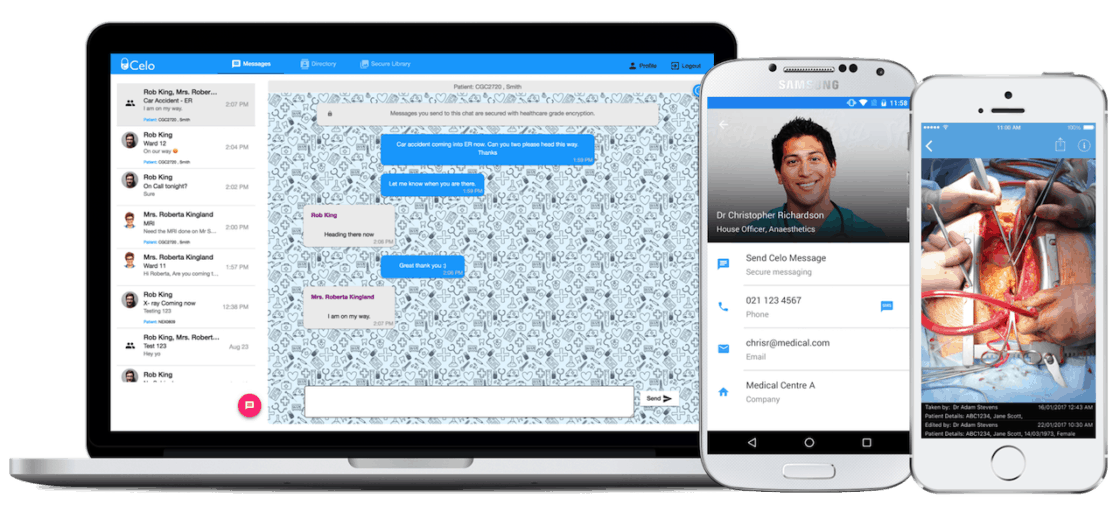Thursday 24 May 2018Media release3 minutes to read
THIS IS AN ARCHIVED PAGE. The advice and information contained in this page may not be current and it should only be used for historical reference purposes.

Celo works on mobile devices and computers.
Medical staff can't just use Snapchat or WhatsApp when they want to send private information to another professional, so what can they do when they need to get a second opinion in a hurry?
An app for Canterbury health professionals lets medical staff confer or safely share a photo at the click of a button.
Christchurch Hospital Paediatrician Dr John Garrett says the Celo app has been invaluable for his work.
“I go to the Chatham Islands twice a year to see paediatric patients over there. One of my patients was also a patient in the plastic surgery service here.”
The patient's mother told John they were planning to fly to the Christchurch plastic surgery clinic for a follow-up appointment regarding a scar.
The trip would have been a considerable expense for Canterbury DHB.
“But more importantly, it involves three or four days of time off work for that parent, time off school for the child,” John says.
“So what I was able to do with Celo was take a picture of the scar, send it straight to the plastic surgeon he was going to see, and within five minutes have her let me know that the scar looked fine. He didn't need to come to his appointment in Christchurch.”
John says the app is also useful when he is on call.
Registrars can share images with him instead of describing conditions on the phone.
“And then we can make better decisions for that patient,” John says.
Celo is the preferred method of communication in the Paediatrics department, and John is looking forward to it being more widely used in the hospital.
Celo will also soon be used in the West Coast DHB, where clinicians regularly confer with Canterbury DHB staff.
While consumer apps such as WhatsApp allow encrypted image sharing, there are issues with using them in the health system.
Messages and images are stored on each phone and anyone who uses or steals the device can see them.
Celo behaves more like a mobile banking app, where nothing is stored on the device and nobody can access information without the user's unique PIN code.
All users on a Celo network are verified, so there is no chance of a user accidentally sending patient images to someone who doesn't work in healthcare.
Celo Chief Executive Stephen Vlok says the immediate mission is to educate staff on why Celo is important.
“Privacy is becoming more important and Celo offers an alternative to consumer-grade apps.”
There are seven other organisations in New Zealand using Celo, and Mr Vlok expects to announce more soon.
“Beyond Australia and New Zealand, we have targeted the United Kingdom, Europe, Canada, Singapore and the United States as markets for expansion.”
Celo has been developed in partnership with Canterbury DHB as part of the health board's focus on using technology to improve healthcare for patients and staff.
ENDS
Tags CeloChristchurch HospitalCommunicationTechnology
Related topics
Innovation
Back to Health News

